Currently Empty: ₹0.00

Why Correct Body Posture Matters
When was the last time you thought about your posture? Most of us sit for long hours at work, bend over smartphones, or lift weights in the gym without realizing the strain we put on our spine. The truth is, correct body posture is more than just “standing straight.” It plays a vital role in preventing back pain, boosting confidence, improving breathing, and even enhancing digestion.
What is Correct Body Posture?
Correct body posture means your body is aligned in such a way that it puts minimal strain on your muscles, joints, and ligaments. Simply put, your ears, shoulders, hips, knees, and ankles should line up naturally.
Signs of Good Body Posture:
- Head aligned with spine, not leaning forward
- Shoulders pulled back, not rounded
- Chest open, allowing better breathing
- Neutral spine with natural curves maintained
- Weight evenly distributed on both feet when standing
Signs of Poor Posture:
- Forward head posture (“tech neck”)
- Rounded shoulders
- Swayback or slouched sitting
- Uneven weight distribution
- Frequent neck and back pain
Example: Sitting hunched over your laptop for 8 hours can shorten chest muscles, weaken back muscles, and lead to pain. Correcting this with exercises and supports like a posture corrector belt can reverse the damage.
Problems Caused by Poor Posture
Poor posture isn’t just about looking slouched—it has real physical and mental consequences.
- Chronic Back & Neck Pain
Forward head posture and rounded shoulders put pressure on your spine. Many patients visit clinics due to back pain caused by prolonged slouching.
Also Read: Causes of Back Pain
- Digestive & Breathing Issues
Slouching compresses abdominal organs and lungs, making it harder to breathe deeply and digest food efficiently. - Joint & Muscle Strain
Uneven posture increases wear and tear on joints, often causing early knee pain.
Also Read: Reasons of Knee Pain in Young Age.
- Flat Feet & Imbalances
Incorrect walking or standing posture can worsen foot conditions like flat feet. If you already have them, using shoe insoles for flat feet or considering cure flat feet methods can help. - Low Confidence & Mental Health
Studies show that people with upright posture feel more confident, alert, and less stressed compared to those who slouch.
Body Posture Exercises for Daily Routine
Improving your posture doesn’t require hours in the gym. Just 10–15 minutes of daily body posture exercises can make a big difference.
1. Wall Angels
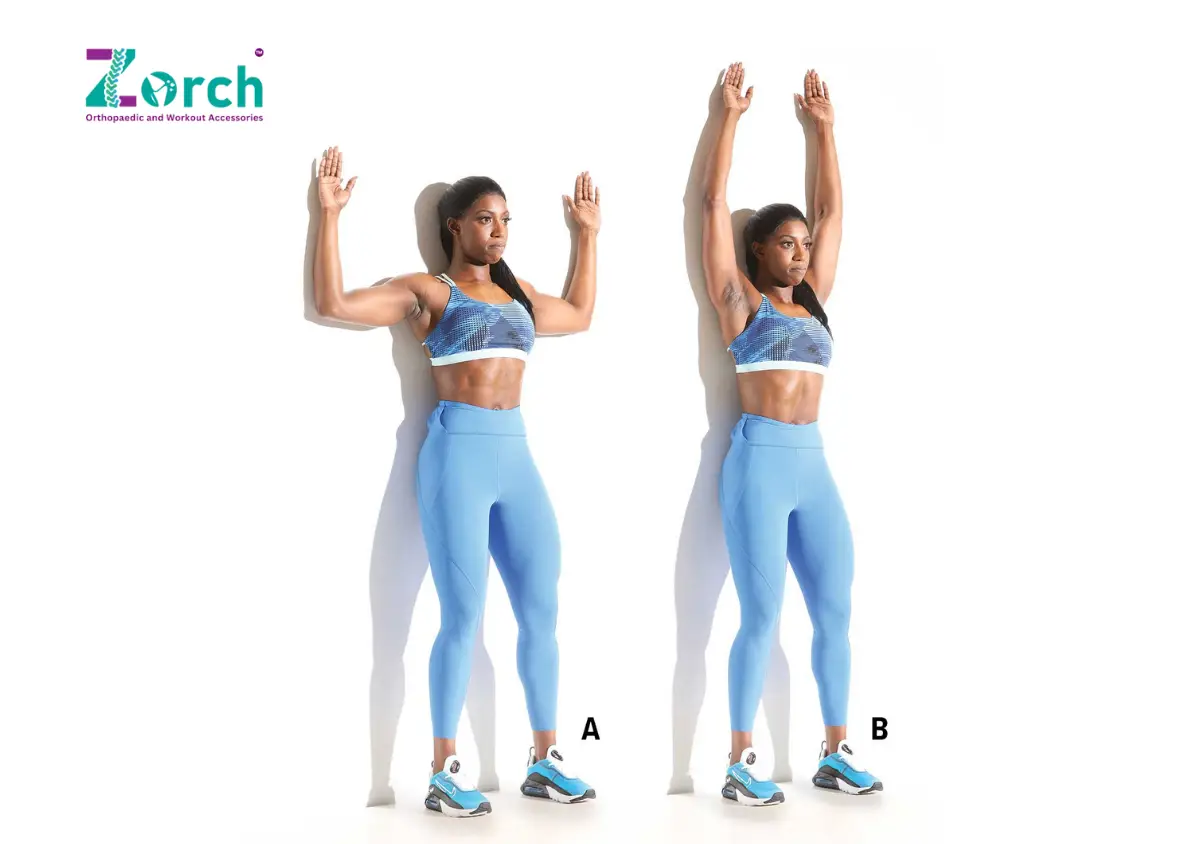
Stand with your back flat against a wall. Slowly raise and lower your arms in a “snow angel” motion. Strengthens back and shoulder muscles.
2. Cat-Cow Stretch
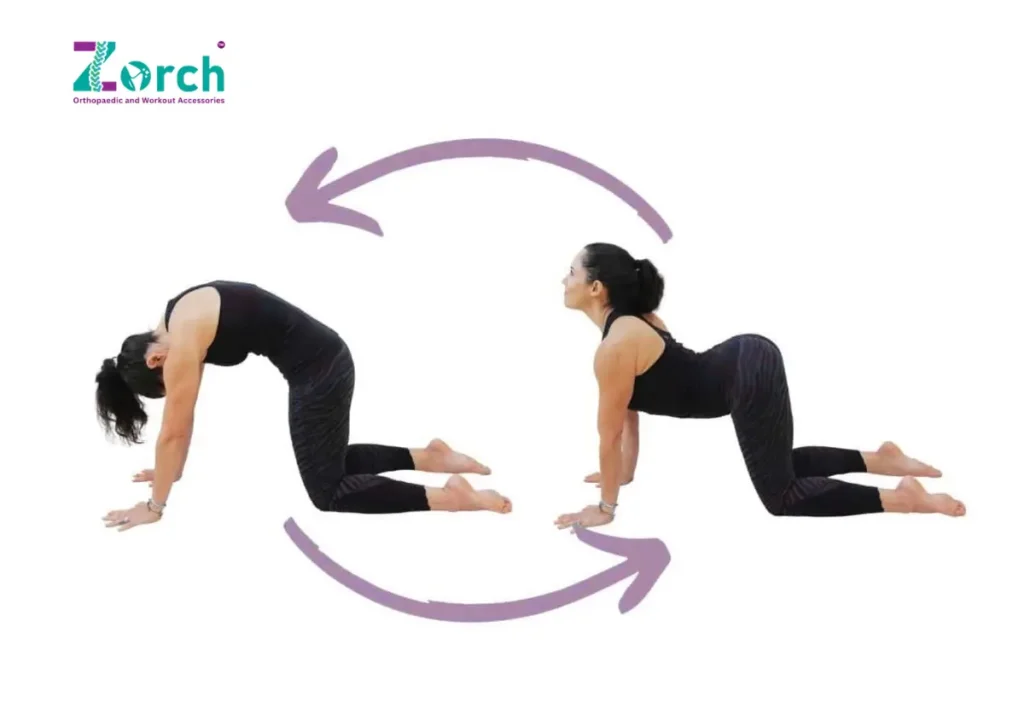
From a tabletop position, arch and round your spine. This improves spinal flexibility and posture awareness.
3. Plank Hold
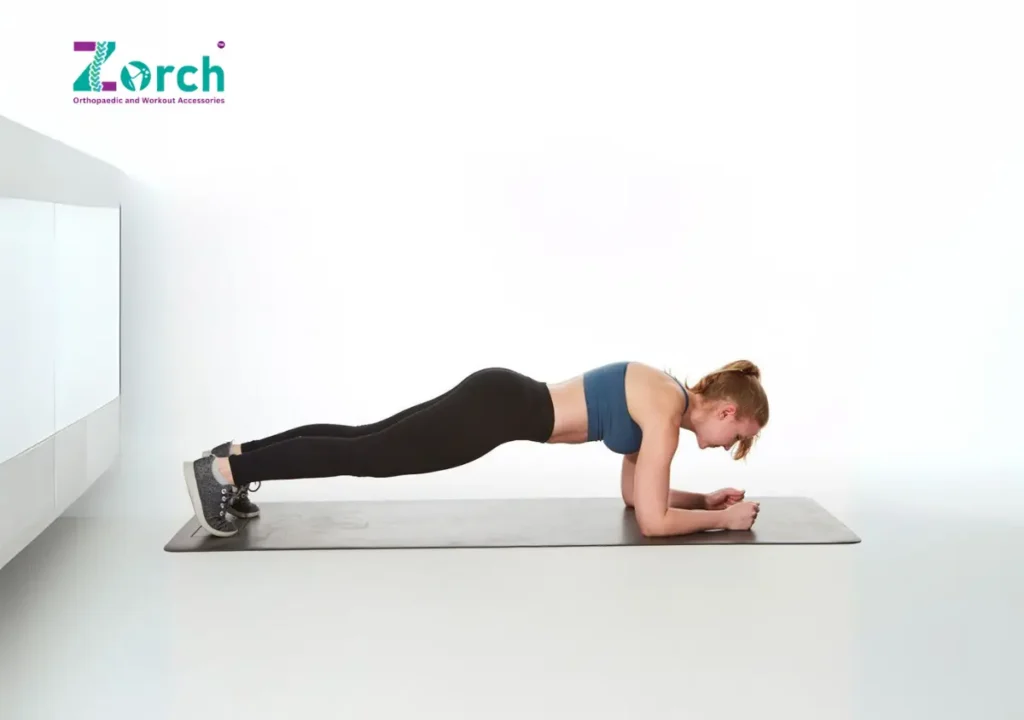
Engage your core by holding a plank for 20–60 seconds. A strong core supports correct body posture naturally.
4. Chin Tucks
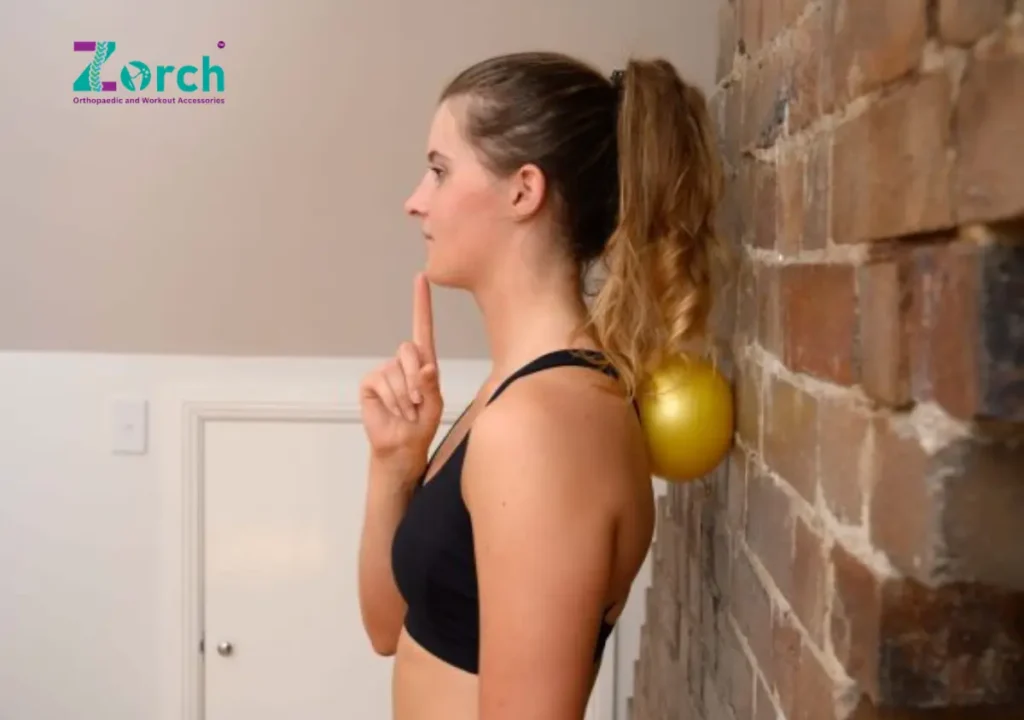
Sit or stand straight. Gently pull your chin back to align your neck with your spine. Reduces “tech neck.”
5. Bridge Exercise
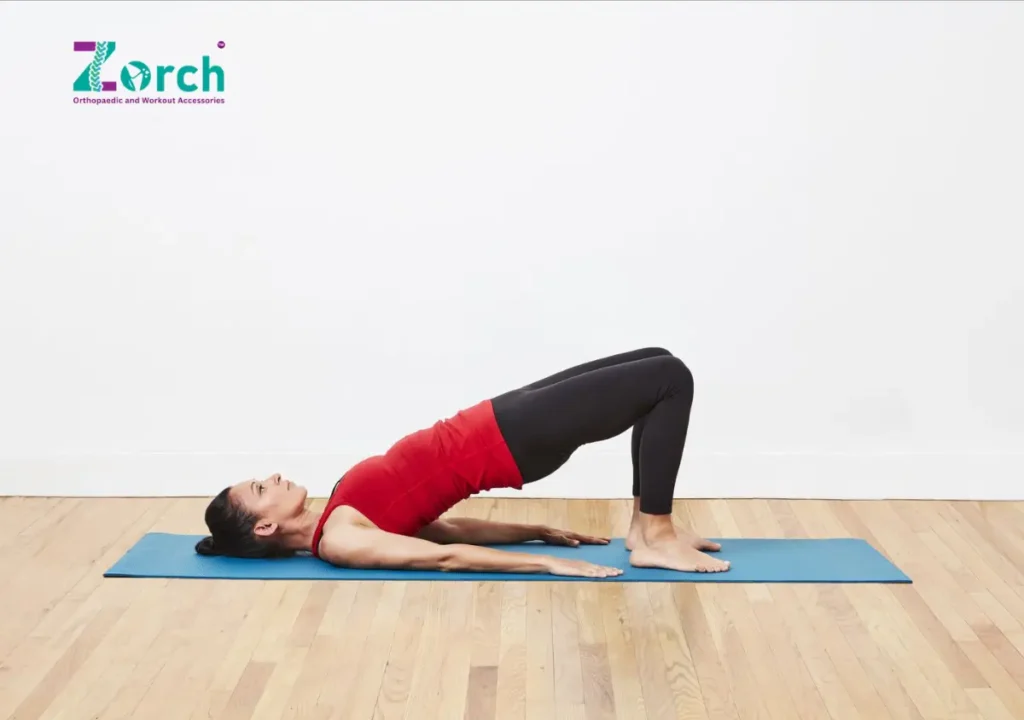
Lie on your back, bend your knees, and lift your hips. Strengthens lower back and glutes and improves spinal alignment.
👉 Consistency is key. These exercises for good body posture gradually retrain muscles to support your spine correctly.
Posture Corrector Belts: Do They Work?
If exercises alone feel challenging, a posture corrector belt can be a supportive tool. These belts gently pull your shoulders back, reminding your body of the correct alignment.
Benefits of Posture Corrector Belts:
- Trains muscle memory for good body posture
- Reduces strain on spine and neck
- Can be worn at work, home, or gym
- Complements physiotherapy and exercise routines
Note: A posture corrector belt should be used as a training aid, not a permanent crutch. Combine it with exercises for long-term benefits.
Visual Guide: Poor vs Good Posture
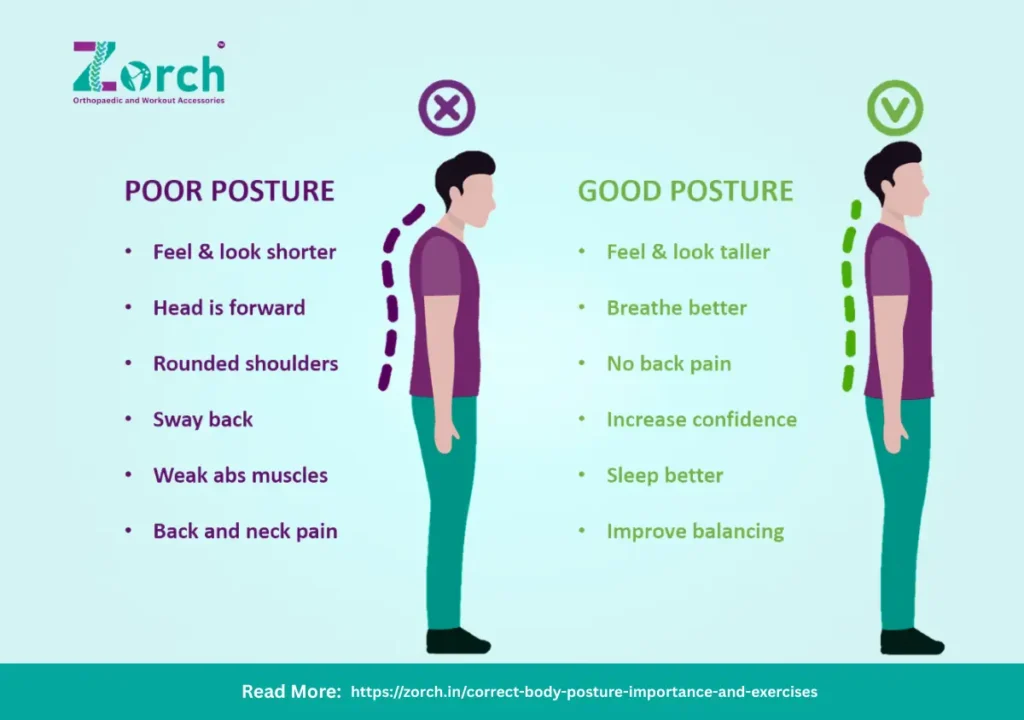
The image above clearly demonstrates the difference between poor and good posture. Notice how the spine alignment affects the entire body:
- Poor posture makes you look shorter, weaker, and often results in back pain.
- Good posture helps you feel taller, breathe better, and even sleep more comfortably.
This is why both exercise for good body posture and tools like posture correctors are essential for long-term health.
Real-World Tools and Lifestyle Tips for Correct Body Posture
- Orthopedic Accessories
Products like lumbar support belts, shoe insoles, and posture corrector belts provide external support during daily tasks. - Workstation Ergonomics
- Adjust monitor to eye level
- Use a chair with lumbar support
- Keep feet flat on the floor
- Daily Habits
- Take posture breaks every 30 minutes
- Avoid crossing legs for too long
- Sleep on a supportive mattress and pillow
- Mindfulness & Breathing
Conclusion: Start Your Journey to Correct Body Posture
Correct body posture is not just about looks—it’s about health, energy, and confidence. By combining simple body posture exercises, lifestyle changes, and tools like a posture corrector belt, you can prevent pain, boost confidence, and improve overall wellness.
At our orthopedic and gym accessory shop, we provide scientifically designed supports including posture belts, insoles, lumbar braces, and more to help you live pain-free.
Start small today—practice an exercise, wear your belt for a few hours, and watch how your posture transforms your life.












